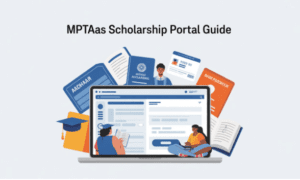The journey of learning a new language is as exhilarating as it is challenging. English, with its vast vocabulary and intricate grammar rules, can often feel overwhelming for learners. Whether you’re just dipping your toes into the world of English as a beginner or are on the verge of fluency, it’s vital to know your current level. The question, “How to know my English level?” has crossed the minds of countless language enthusiasts. But worry not! The tools and resources to determine and test your English proficiency are within your reach.
Understanding the English Level Landscape
Before diving into tests and exams, let’s familiarize ourselves with the terminology of languages. The Common European Framework of Reference for Languages (CEFR) is a widely accepted system that classifies language proficiency into six levels:
A1-A2 (Beginner to Elementary)
At this stage, you’re learning the basics of the the English grammar and language, mastering daily-use words and forming simple sentences.
B1-B2 (Intermediate to Upper Intermediate)
You can now handle most situations when traveling in an English-speaking region, discuss familiar topics, and understand the main points of complex texts.
C1-C2 (Advanced)
This is where you can comprehend detailed texts, express ideas fluently, and use language flexibly for social, academic, and professional purposes.
Discovering the Right Test for You
There are countless English level tests available free test them online, from free tests to more comprehensive placement tests. Here’s how to navigate them:
Online English Tests
Websites likeEnglish with Lucy not only provide resources for English learners but often collaborate with or have associated platforms dedicated to English tests. These tests commonly address various facets different aspects of the language, encompassing grammar, vocabulary, and occasionally spoken skills.
Placement Tests
If you’re considering enrolling in an online English only course, many schools and online platforms provide placement tests. These are designed to evaluate your English level and place you in the appropriate course. They test your ability to communicate in complex situations, understand detailed texts, and much more.
Self-Evaluation with the CEFR
While tests are a great way to get an objective measure of your language skills now, self-evaluation can also be beneficial. Are you comfortable reading newspapers or business reports (advanced) or are you still at the stage of understanding simple sentences and expressions (beginner)?
Consider the Time and Format
Before you dive into a test, consider how long you have. Some tests come with a time limit, ensuring they assess your ability to think and answer swiftly in English. Additionally, are you looking for a test that covers just grammar, or are you keen on evaluating your spoken English skills as well? Different tests cater to different needs, so choose wisely.
Embarking on the journey of learning English, or any language, is a commendable endeavor. Remember, the key to mastering a language lies not just in knowing your current level, but in constantly striving for improvement. With the right resources and determination, English proficiency is within your grasp!
FAQs
What level of English is fluent
Fluency is typically associated with the C1 and C2 levels of the CEFR. At these levels, you can understand a wide range of demanding texts and express yourself spontaneously.
What is a B2 level of language
B2 is considered an upper intermediate level. At this stage, you can interact with native speakers quite fluently and communicate spontaneously, making regular interaction with native speakers possible without strain for either party.
What is a C2 level of English?
C2 is the most advanced level in the CEFR+ test. It denotes mastery over the language, where one can understand virtually everything read or heard and can summarize information from various spoken and written sources.
Is C2 the highest level test of English
Yes, C2 is the highest level of English proficiency as per the CEFR exam. Achieving this level means you have a near-native grasp of the English language.



































